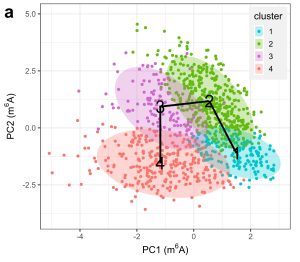02 Sep 2018
Title: Avoid becoming part of the giant baby phenomenon

Dear students, parents, teachers, colleagues and friends,
First, let me thank everyone for joining me here on this beautiful autumn day in Suzhou for the 2018 opening ceremony of Xi’an Jiaotong-Liverpool University. Let me also congratulate our new students – I hope your transition to becoming XJTLU students is smooth.
I feel a rich mix of emotions each year around this time, seeing the faces of students teeming with youthful exuberance, and the trust and anticipation toward XJTLU on the faces of their parents. At the same time I feel a heavy weight on my shoulders, but also a profound sense of joy. Perhaps this is a normal feeling among educators.
Over my decades of work in higher education, I have met all kinds of people – students, parents and people from all walks of life. They have enriched my views on life. However, at risk of bringing down the mood of this ceremony, I would like to take this opportunity to discuss China’s phenomenon of “giant babies”.
“Giant babies”, as the name suggests, refer to people who are biologically adults, but whose psychological and social maturity resembles that of an infant; who only take but do not contribute, and who are self-centered. So what is the Chinese version of the “giant baby”? It might be an environmental influence in China, or just an inherent personality trait among children – but it is certainly because behind every child in China are two “omnipotent” parents.
In recent years, I have heard the same mantra spoken over and over again whenever a student faces a problem, whether from students themselves or their parents: “(s)he’s just a kid, what does (s)he know?” And I want to ask these parents, why doesn’t (s)he know anything? Why are some kids, who are the same age, able to make their own decisions and have a clear plan for their lives, but your child is a “child” who knows nothing? Does (s)he really not know anything, or do you just not think (s)he does?
I ask the parents in the audience to ask yourselves – have you found yourselves thinking the following?
“I don’t let my child leave my side. As soon as (s)he does, I lose my appetite. Is this co-dependence?”
“My child thinks there’s nothing (s)he can’t do, but as soon as his/her grades have a slight drop (s)he becomes depressed. If this goes on, what can I do to protect him/her from this fragile personality?”
“Whether it's choosing a university, or a major, providing food and lodging or even organizing simple daily tasks, am I taking care of my child to the point of micromanagement?”
If this is the case, now may be a good time to reflect on your approach to education, on where you are taking your children, and whether or not you are turning them into “giant babies”.
As you all probably know, university is a very different experience from middle school and high school. It is freer, more open and less restricted. This is a major challenge for students. It is a major change in their environments and in their modes of study. It is also a significant hurdle for parents – after all, your children, who you have been keeping under your wings, are leaving you and going out into the world. You may worry about the problems they might face, whether they can solve these problems, and whether they may err in judgment. We understand these worries. Nevertheless, we must remember that our children are like trees as they grow, ring by ring, with each ring marking a different stage, with new knowledge, challenges and experiences gained at each stage. What parents must do is stop worrying, let go, and change their attitudes. Don’t let your love for your children become a hurdle for them; don’t let them become “giant babies”!
1. Don’t worry: you don’t need to follow your child wherever you go.
We must love and accompany our children as we raise them, but that doesn’t mean shadowing them wherever they go. Education does not mean doing things for your children, nor does it mean clinging closely to them. In our role as parents, we must learn to lead by example, allowing our children to learn from us how to conduct themselves and how to handle problems. As they gain more independence, we must learn to gently let go, and back off as appropriate. The sky is the limit for our children—all we need to do is love them.
2. Let go: trust in your child’s own judgment
People say that children are like a blank sheet of paper, but often we forget this. As parents, our job is not to do a big “splash painting,” but rather leave some blank space for our children to develop. We must leave our ideals, thoughts and preconceived notions out of these blank spaces, and learn to help our children build and handle their own lives and relationships, all the while making sure they feel loved.
3. Change your attitude: grow with your child
As parents, one of the biggest mistakes we find ourselves making is believing that we are always right, that having gained life experience, we can naturally raise children well. But as times change, despite our rich experiences, we may not see certain things as clearly as our children do. We should not force our opinions on our children. The life you want for them may not be the life they want for themselves, and you may find that you learn more from your children than they learn from you.
We at XJTLU hope that everyone sees our students as youthful adults, who are able to adapt quickly to new environments. Often the greatest obstacle our students face is parents that are unwilling to let go. Many parents who contact our university and seek advice from us when their children face challenges do not understand our university’s policy. Students who are overprotected by their parents are unable to fully grow and face society.
Of course, when I tell parents to let go, we all know that our goal is to allow our children to grow as fast as possible. Of course, growing is not so much a goal for our children as it is in their nature. So I say to our dear students, your parents’ letting go is part of your growth and development. At the same time learning to handle issues responsibly will put their minds at ease and will earn you even more space for growth.
No one wants to become a “giant baby”. But sometimes our students’ dependence on their parents can make parents worry, and the resulting “love and care” can trap them into becoming a “giant baby”. Therefore, if we want our parents to change, we must first learn to change ourselves. XJTLU seeks to achieve nine changes across three stages for our students, namely changing from child to young adult to world citizen, changing from passive learning to active learning to research-guided learning, and changing from blind studying to interest-driven study to life-planning.
My dear classmates and parents, XJTLU had nearly 2,000 undergraduate students graduate this year. Some of you may have noticed that this is 300 fewer students than entered XJTLU four years ago. This has led to some fervent discussion among parents. While many realize that studying at XJTLU is not easy, others have sent my colleagues and I messages reminding us to pay special attention to students with specific needs.
XJTLU places great emphasis on the needs of our students, and therefore launched a Bounce Back Programme (BBP) to help students get through challenges they face. This year, we have upgraded the BBP to WINGS+, to assist more students in their transformation and maturation.
Over years of observation, I have found that these students generally fall into three categories. The first are students who respond to the unrestrained environment at the university by playing computer games and not transforming their study habits. The second are students with weak foundations for studying. Finally, the third kind are students with poor relationships with their families or who have behavioral problems. The first type generally can transform quickly once they have realized their problem. Among the second type, some are able to improve their study habits through their own efforts, while others find it difficult to keep pace at XJTLU. The third type, however, face the most serious challenges in their studies.
I hope that you understand that, once you have entered XJTLU, you are now youthful adults who must learn to be independent and responsible. We hope that you can quickly realize the “nine changes across three stages” that we anticipate for our students. And if you really do face problems, I hope that you can actively seek help through our WINGS+ Programme or other channels to get you back on track.
I sincerely hope, as you enter into life at XJTLU, that you can internalize our educational philosophy and quickly make the transition to becoming competitive world citizens with international perspectives. I also ask parents to stop worrying, let go and change your attitudes; to join us in helping students gain experience, grow and become responsible for their future. We will find that the sky will not fall down, and that our letting go and allowing our students to grow will bring us a wonderful surprise.
Thank you all.
02 Sep 2018








